Immigrant Song

This story appears in the July 29–August 5, 2019, issue of Sports Illustrated. For more great storytelling and in-depth analysis, subscribe to the magazine—and get up to 94% off the cover price. Click here for more.
The boxer, the restaurateur, the detective and the accountant—they never planned all of this. Not exactly, anyway. How could anyone? The improbable intersection of their lives began like a walked-into-a-bar joke and unfolded like something closer to a Jason Bourne movie. Sure, they knew that helping a two-time Olympic gold medalist defect from Cuba to the U.S. would require an abundance of cash, patience and kismet. But drug cartels and military checkpoints? An immigration march and Marco Rubio?
It all started with a phone call in June 2018. The boxer, 24-year-old Robeisy Ramírez, saw the professional future that awaited him should he make it to the open market, where boxing’s top promoters were salivating over his dominant Olympic runs. From an amateur tournament in Germany he dialed a restaurant in Gulfport, Fla., and asked for the owner, a woman he knew only by her reputation: deft, harried, brilliant. Maybe, by her own admission, a little loco. Ramírez knew one other thing about Jo Hastings. She’d built a side hustle as a liberator of Cuban athletes.
“I understand that you can help me,” Ramírez said in Spanish, explaining that he wanted to defect to the U.S. and that he’d found her through a friend of a friend.
OPERATION ROCKY: THE TEAM
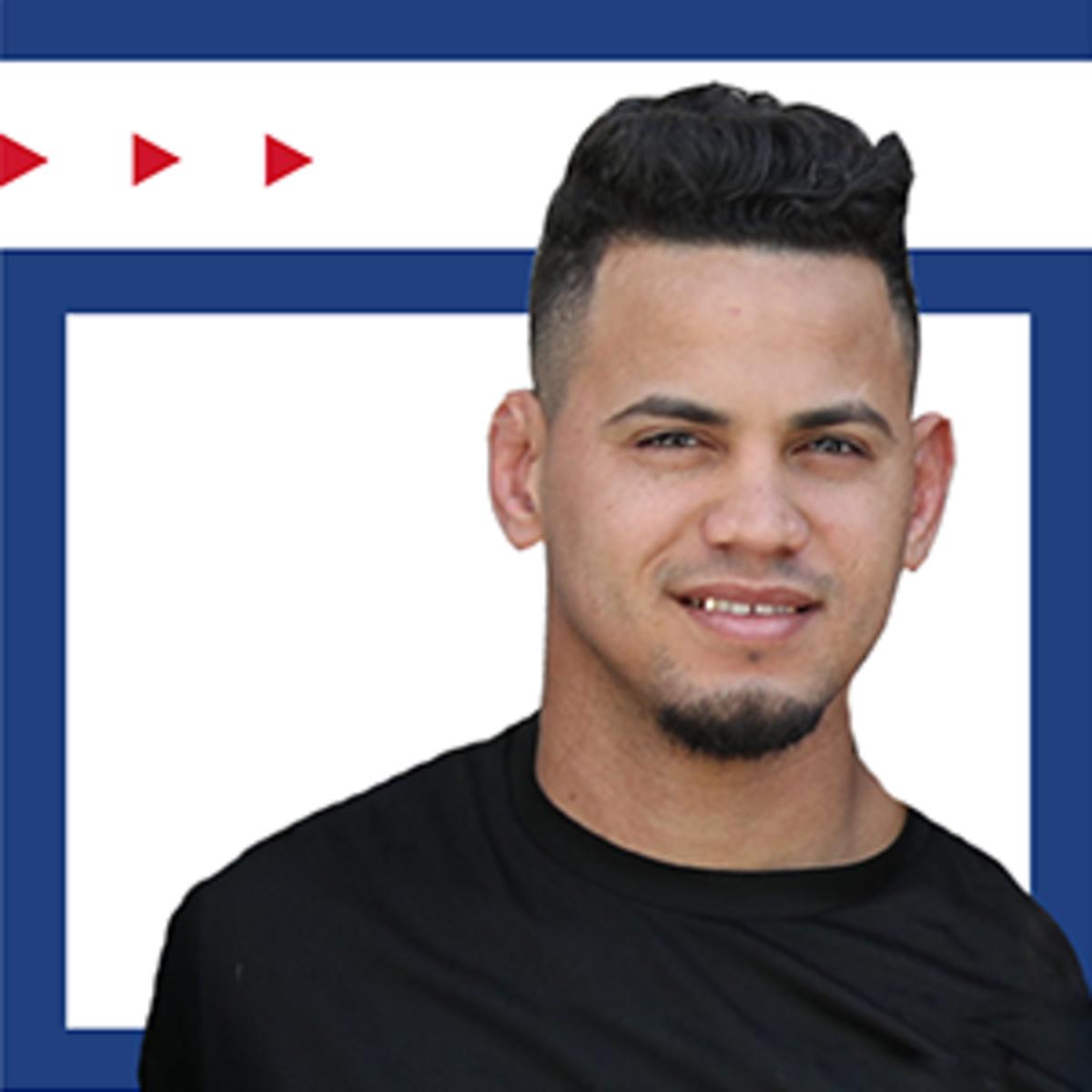
ROBEISY RAMÍREZ
The target
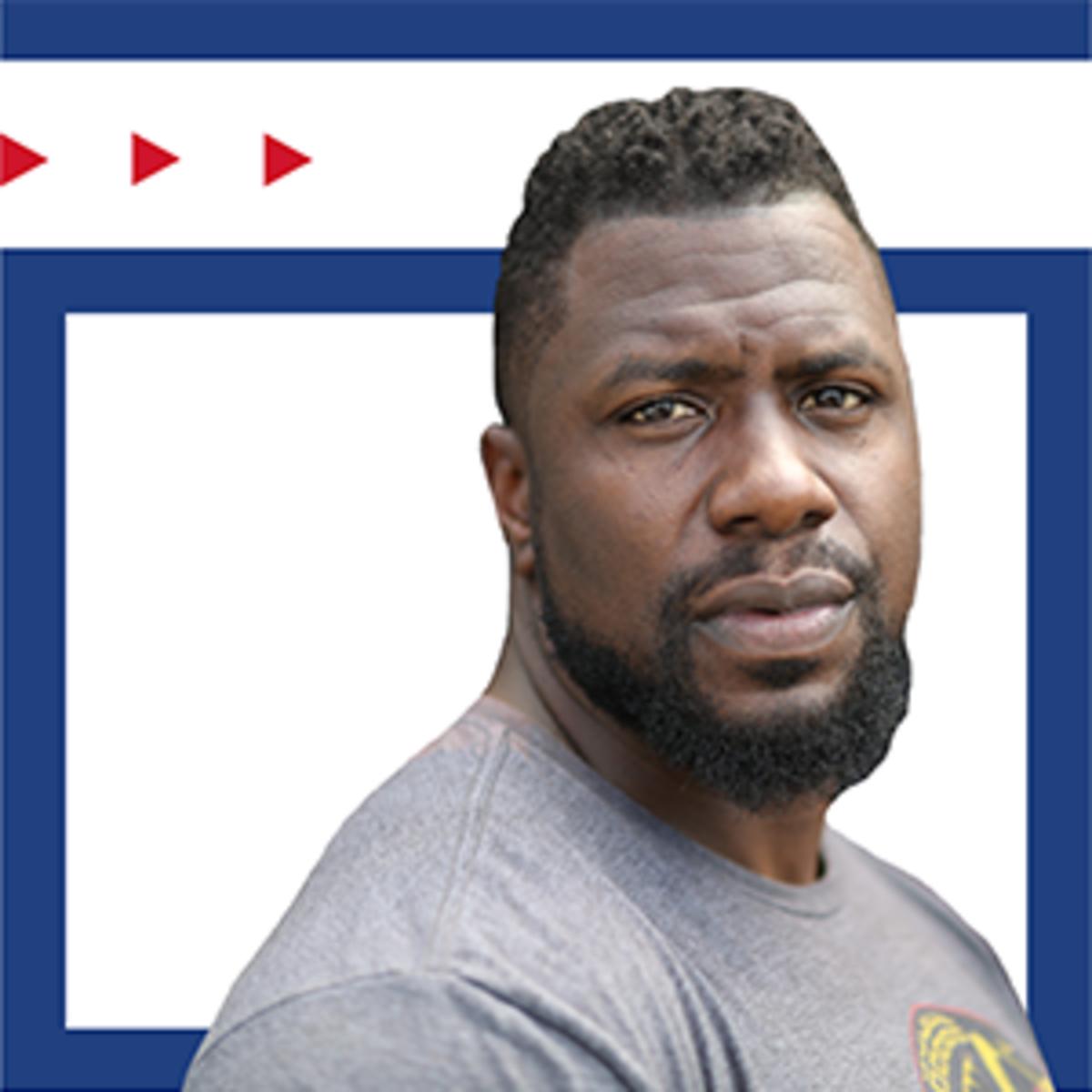
BILLY HENDERSON
The muscle
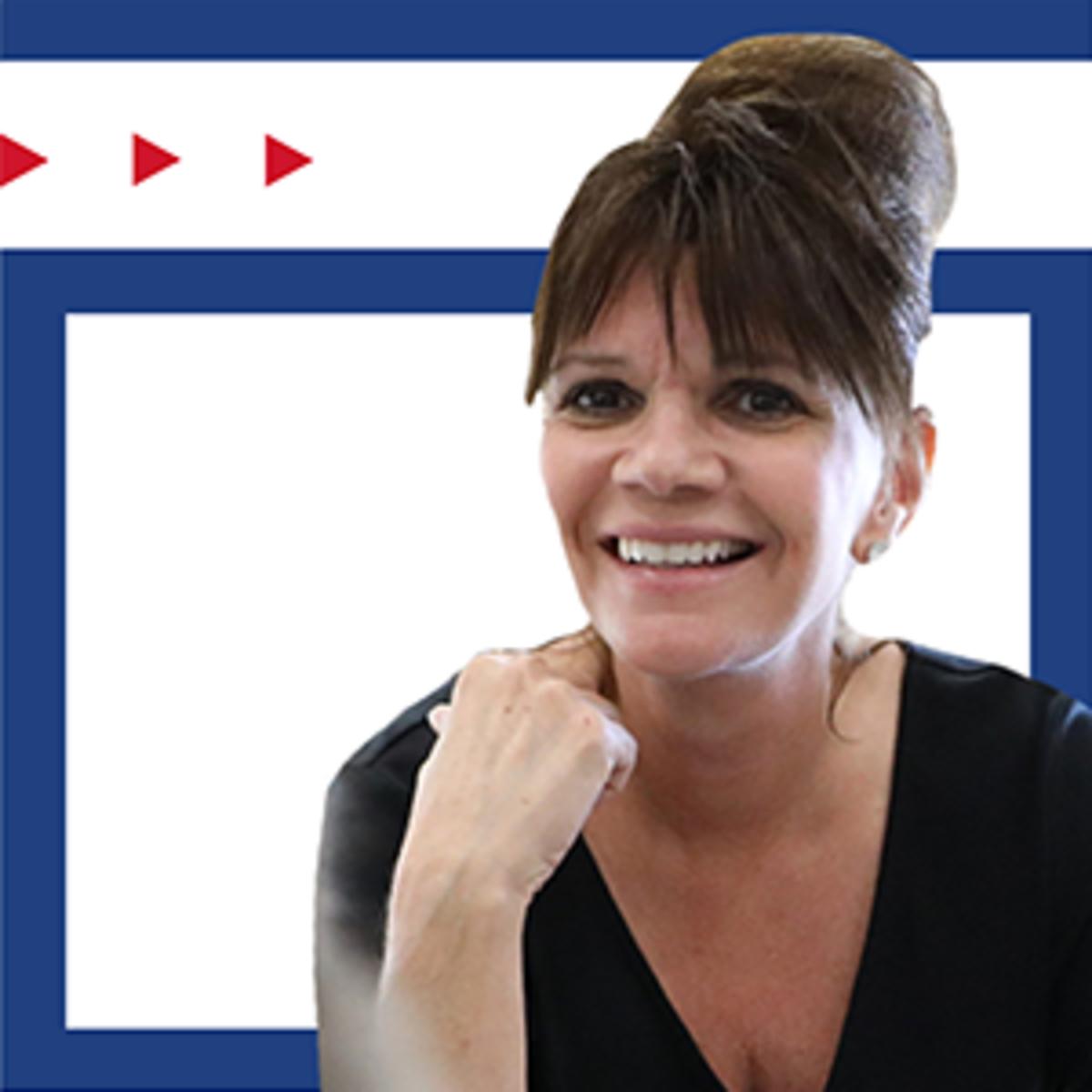
JO HASTINGS
The brains

DAVID HASTINGS
The money man
Jo, then 59, told him to listen carefully. She wouldn’t follow the standard (and illegal) game plan for sneaking someone out of Cuba. She wouldn’t draw up a fake passport, like the one White Sox first baseman Jose Abreu says he used, and then ate, on his escape flight to the U.S. in 2013; she wouldn’t turn to illegal smugglers, like the ones who allegedly helped Reds outfielder Yasiel Puig in ’12and then threatened his life over unpaid debts; she wouldn’t throw Ramírez onto a speedboat in the middle of the night, like countless other escapees.
No, she would rely heavily on lawyers and paperwork—and while she navigated the byzantine mazes of immigration law, he would be in danger. Her plan could take six months, maybe more. In that time Ramírez would grow bored, impatient, desperate. “It’s going to be ugly,” she warned. “You’re going to be hunted. You’re going to be accused of being unpatriotic. Your family is going to lose its home.”
Jo couldn’t help him in Germany. But she could help if he were in Ecuador, Colombia, Panama, Guatemala or Mexico—countries where a defector could establish residency with relative ease.
Ramírez told her that in a few weeks, on July 1, he’d be heading to Aguascalientes, Mexico, with the Cuban national team for a training camp, and Jo saw an opportunity. They had a cursory discussion about what they would each get out of the arrangement, financially and otherwise. Then Jo told him to use WhatsApp to send pictures of his travel documents when he boarded his flight to Mexico, making sure to delete all communications from his phone, and to bring along only a few valuables, like his two medals. (Too late. He’d long ago sold them for $30,000.) If he was on the fence, she said, don’t decide now. Think hard about it.
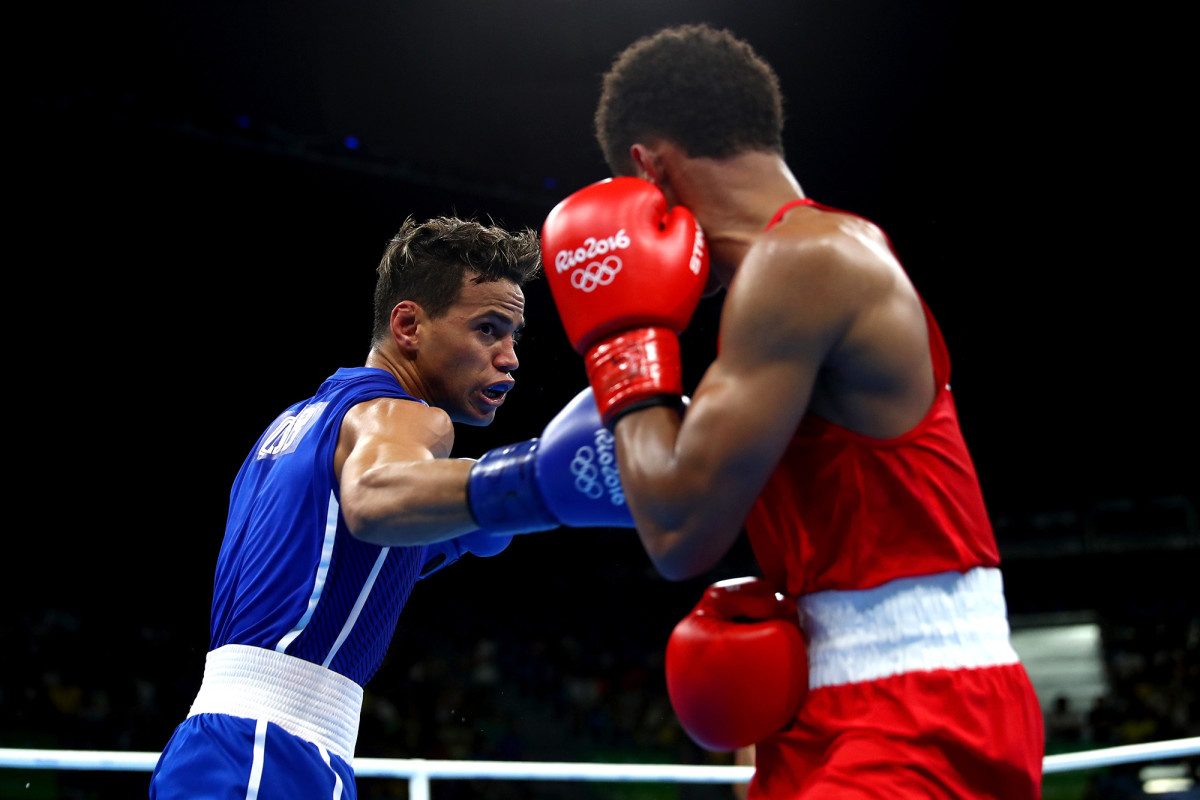
Finally, on the appointed morning, Jo’s phone pinged, waking her before sunrise. She had all but forgotten. There were the documents, the address for the Cuban team’s temporary house in Aguascalientes and a schedule of Ramírez’s workouts. He had rest periods planned in the afternoon—perfect for slipping away.
Jo huddled with her husband, David, who handled the budgeting on her extraction efforts; and she called Billy Henderson, a veteran of the St. Petersburg police department whom she’d sent before to fetch defectors. Billy would serve as a bodyguard, caretaker, driver and fixer; he and the boxer would assume most of the non-financial risk. But, really, they all wanted the same thing—the fighter who could become a millionaire on the open market; the spiky-haired restaurateur whose lifestyle was proof of the reward in taking chances; and the muscled detective who already risked his life for money but now sought more substantial payoff, the path to a better life.
“S--- just got real,” Jo told Billy, who the next day left for Mexico carrying three handguns and their permits.

Jo’s family escaped to the U.S. over 50 years ago, when she was four, immigrating from Cuba to St. Petersburg, with a nine-month stopover in Mexico City to apply for visas. As an adult she worked as a flight attendant, peddled kitchenware and authored a Cuban cookbook, her recipe for cream cheese flan winning her $10,000 from Southern Living. In 1991 she married Hastings (a CPA and spin class teacher who survived Stage 4 throat cancer) and together they moved into a big house with an iron gate, a sprawling lawn and a pool. They rescued nine cats and two pit bulls, and Jo opened Habana Café in ’97, in Gulfport, close to the spring training headquarters for a half-dozen baseball teams.
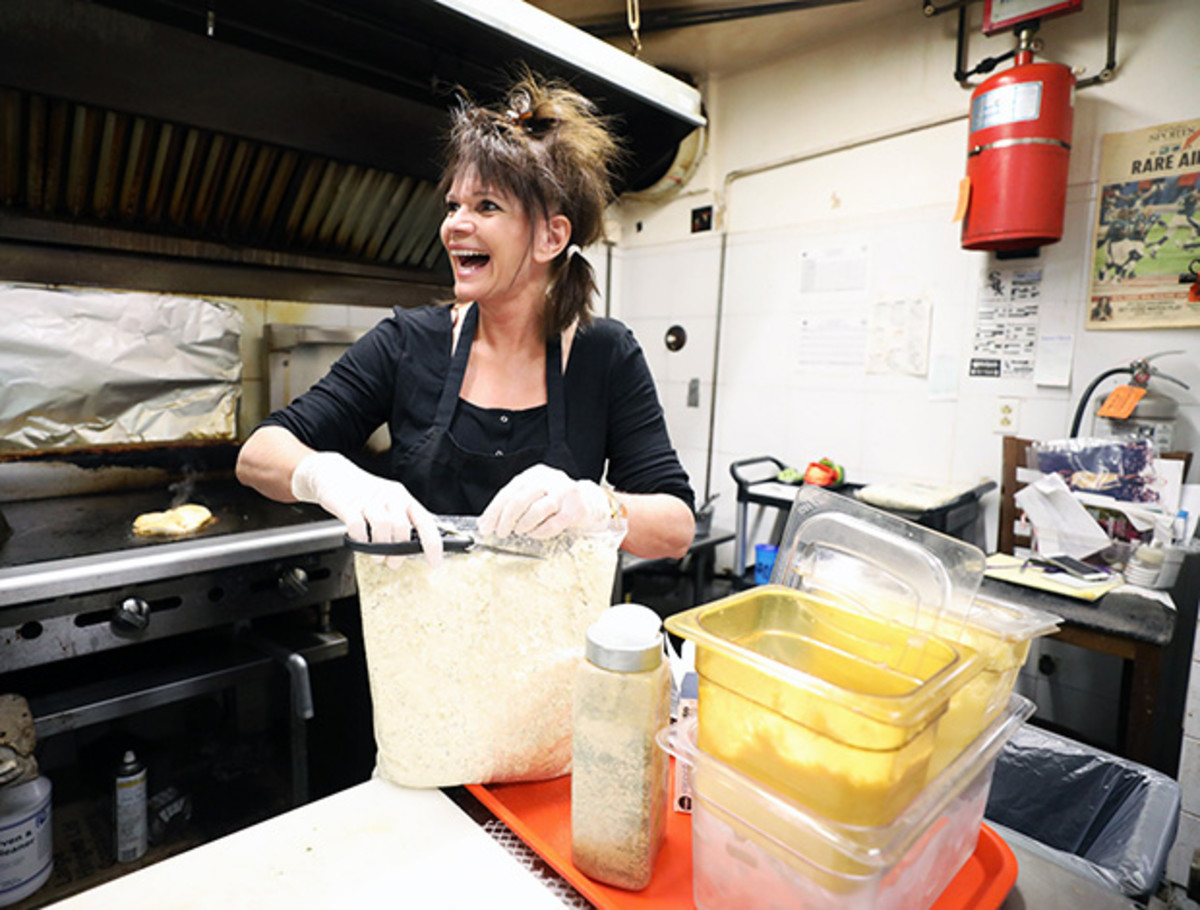
Jo’s cousin worked as a photographer for the Pirates, and as he started to bring players from various teams by the restaurant for dinner, Jo took particular interest in the Cubans. These men detailed the oppressive regime back home; the lack of food, cars, stores, jobs, choices. By 2013 Jo began studying the defection process in depth: reading law journals, calling lawyers, wondering if she—the flight attendant turned slow-roaster of delicious pork—might be able to help. The answer, she decided, despite the financial risk and attendant stresses, was yes.
Why? “Why does anyone do anything?” she says. “Because it’s a challenge.” She acknowledges there’s a business side to this, money to be made, “but there’s a humanitarian side to it, too. I understand their plight and how hard it is for them back home. And if they’re asking you for help, what are you going to do? Say no?”
Jo phoned Billy one day back in 2013. She’d watched him grow from an impoverished teenage busboy into a bruising running back at South Florida. He would shred his left knee, then work as a combat medic in the Navy, earn a Master’s Degree in Sports Admin and settle into police work as a detective focused on violent crime around Tampa. He operated like a bounty hunter, tracking criminals, often undercover—the perfect training for this crazy plan Jo had in her head.
“Can you take some time off?” she asked. One of the Cuban ballplayers from the restaurant had told her about a promising prospect who wanted to flee to the U.S., where he had several major league teams competing to hand him bags of cash. His name was Yoan Moncada. Jo needed Billy’s help. And there was money in it for him.
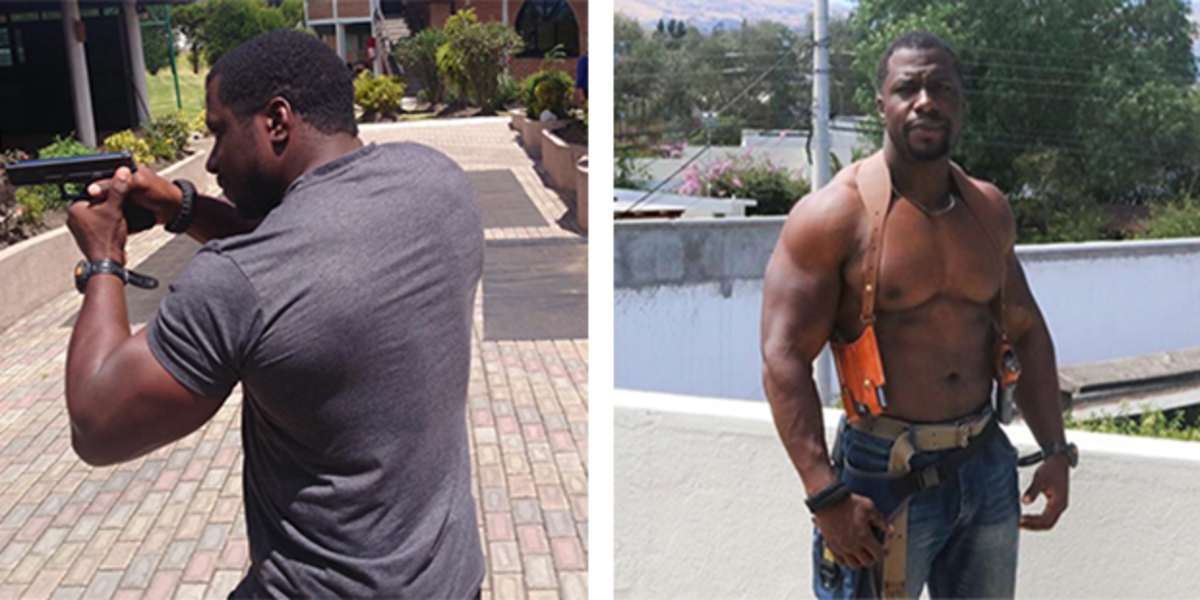
Billy didn’t flinch. He loved police work, but he wanted more. He saw the Hastings’s house, with the luxury cars in the garage, and imagined that life for himself, his wife and his children—something beyond their modest home and worn minivan. He was in. By 2015 he would leave the force for good.
Getting Moncada into the U.S. legally—obtaining a new Cuban passport, establishing residency, applying for visas—took 21 months. Jo’s group would spend $988,000 to house and feed and constantly relocate the ballplayer they referred to by the code name Boy Wonder; to hire lawyers and armed guards; to keep him safe in Ecuador while they navigated all the paperwork-—all nuisances that a smuggler would avoid. And eventually the Red Sox signed the gifted infielder, his bonus alone commanding a cool $31.5 million.
Jo’s team received a percentage of his earnings. Individually, they decline to say exactly how much or how the money was distributed, but David notes that baseball agents can charge up to 5% of a given contract, which would have netted almost $1.6 million on the bonus alone.
Other baseball players began reaching out. The trio helped extract Andy Ibanez, an infielder now in the Rangers’ organization, and failed at various stages of other attempts. Then the boxer called and Jo bestowed another code name. Operation Rocky would begin immediately.

Jo chose July 4 as Defection Day, for the obvious symbolism, and she dispatched Billy to Mexico shortly after receiving Rocky’s documents. Billy, meanwhile, prepared for the worst. He’d never told his family about his work with Jo; when he left home he’d feed them some line about training an athlete for months on end. He didn’t want them to know about the danger. This time, though, Billy sat on his hotel bed in Aguascalientes and recorded a cell phone video for his wife, explaining what he called “the heist” with an expression somewhere between weary and nervous. “Today is July 3, 2018,” he said, looking into the camera. “I’m kind of on a secret mission. . . .” He fired the video off to Jo, who would share it with his family only if something happened to him.
Jo asked Billy to stage a dry run of the escape that afternoon, driving the five hours to Mexico City (a safe distance away), scouting the police checkpoints he’d encounter on the Fourth. The more Billy thought about it, though, the less practical this seemed. He didn’t have 10 hours to waste, and so he called Jo back. “Let’s do it now,” he said.
“You’re giving me a heart attack,” she yelled back.
On WhatsApp, Jo informed Rocky of the switch. No problem, he said; he had a window of opportunity after lunch, before his workout. Billy hopped in his rental SUV and drove past the national team’s house, recording with his phone as he spotted Rocky in an upstairs window, peeking out from behind a curtain. Confirmation. He sent the video to Jo.
Billy parked down the street, in eyeshot of the boxer’s room. At 2 p.m., with his roommate immersed in cartoons, Rocky walked out of the house, gaining speed with each step. He did not close the door behind him. As Billy filmed from the driver’s seat, Rocky climbed into the back, carrying only a small bag and the smile of a freed man. He would have two hours, tops, Jo’s team estimated, before Cuban officials realized their man was gone. One of the first things Billy told him: “Take the SIM card out of your phone. Toss it.”
Rocky and Billy zipped through downtown and toward the highway, where they reached a checkpoint for random searches. Policemen and M16-toting guards in green Army fatigues motioned cars to the right—to a barricaded search area—or to the left to continue on their way.
Rocky had no passport or visa. (Cuban athletes are required to surrender their papers to team officials when they travel internationally.) And without ID, suspicions would surely be raised. Billy figured it wouldn’t take long to match the kid in the car with the defected Olympian. Then what?
The guards motioned the car in front of Billy to the right . . . then sent the SUV left and on its way, the first in a series of fortuitous breaks.
On the open road the city landscape faded into farmland, then back into the silhouette of Mexico City, where the hope was that Rocky would blend in among 8 million strangers. But the police had already notified the press about the boxer’s disappearance. His face was all over the news.
Jo’s team couldn’t be too careful. In other defections they’d heard of smugglers who were killed, parents who were kidnapped, athletes who were caught and turned back over to the government they’d spurned. When Moncada defected, Jo says, someone offered her $1 million to hand him over.
“It’s Mexico,” Billy says, citing the powerful drug cartels, who would be happy to kidnap a defector for a ransom from the Cuban government. “Rocky is worth a lot of money. And everyone around him is totally dispensable.”

On the long drive to Mexico City, Ramírez found himself questioning how he’d ended up in the back of a getaway car driven by a man he’d never met, dodging checkpoints and terrors both real and imagined. How he’d strayed so far from his hometown of Cienfuegos, on Cuba’s southern coast, where lobsters grew bigger than babies and arrived daily, delivered fresh on fishing boats. The cleanest city in all of Cuba, he says.
He grew up one of five children in a house near the water, living a typical Cuban existence: few material goods, five television channels—one devoted entirely to government propaganda—and just enough money to get by. Ramírez describes his younger self as a decent student but also disruptive, mischievous and stubborn. He latched onto sports because they got him out of school almost three hours early—first baseball, then boxing. From 2004 to ’09 he won his first 129 bouts and climbed through the best amateur boxing system in the world. Officials summoned him to Havana to train full time and he moved into a dorm, where 30 fighters bunked in five rooms, their possessions limited to training necessities.
Ramírez would spend his days studying and working out, and he was expected to abide by his coaches’ every instruction. Cuban officials liked to remind him of the program’s Olympic medal count: It’s now up to 73, with 37 gold, from a country of only 11 million. “It’s like you’re groomed to be a soldier,“ Ramírez says. Even now he calls himself “just a product of the system.”
Fighters have escaped that system before. Joel Casamayor, Guillermo Rigondeaux and Yuriorkis Gamboa each won Olympic medals for Cuba, and each defected, building successful pro careers in the U.S. But when Ramírez won his first national championship, at age 17, he had not yet considered leaving. He won his first Olympic gold a year later, as a flyweight, in London, then moved up one weight class and in Rio conquered the Games all over again, ousting prospects like Michael Conlan, Tugstsogt Nyambayar and Shakur Stevenson along the way. (Today those three men are a combined 34-0 as pros.)
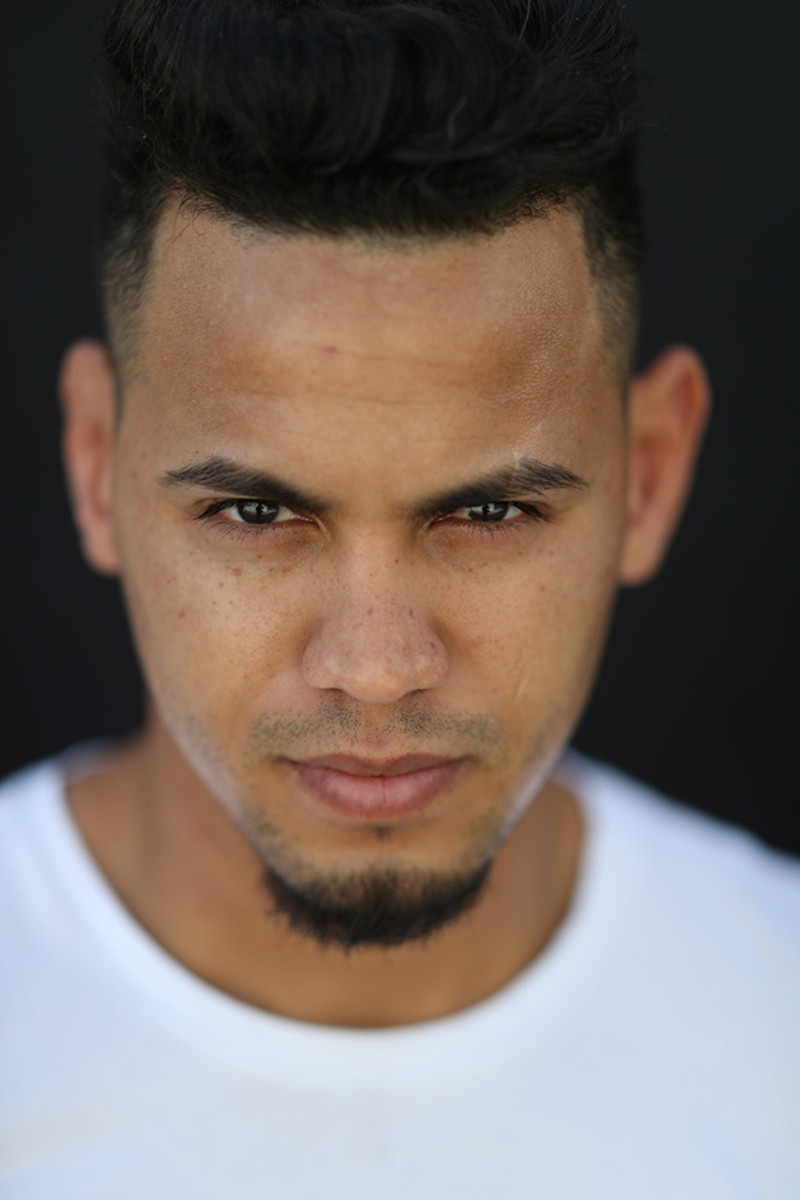
Ramírez could also be a disruptive force outside the ring, though, and sometimes he’d leave the training program after clashing with coaches. Other times he was sent away as punishment. Officials chastised him for being two pounds overweight and made him remove a tattoo of the Olympic rings that he had inked on his left bicep. They told him when and for how long he could visit his parents and his daughter, Renata.
The incident that finally pushed Ramírez to defect, he says, occurred in 2015, when he accidentally totaled a white Geely CK sedan that the team had awarded him. Officials promised a replacement vehicle, he says; instead, they gave cars to more than a dozen other athletes with lesser résumés. For Ramírez it was less about the car itself and more about what it represented.
“You have to understand how deprived these athletes are,” Jo says. “The car was one of his few possessions; it could seem like his entire world. He couldn’t sign endorsements, couldn’t move around freely; he was told what to do and when. To him, the car was freedom.”
So Ramírez decided to seek that freedom elsewhere, even if it meant leaving loved ones behind, even if it meant he would be banned from Cuba for at least eight years, as officials often reminded him. He would be doing more for his family if he turned pro and sent money home.
And he could only turn pro if he could get out.

Whatever Robeisy Ramírez expected of Mexico, he found an exasperating dichotomy to life on the lam, with long stretches of dreary isolation interrupted by brief moments of abject terror. For months he struggled to ascertain whether he was any closer to the new life he imagined. But he knew that if anything went wrong and he was sent back home, it would be years before he could try again. If ever.
It didn’t help his cause or his outlook that the Cuban Sports Institute issued a release declaring Ramírez had “turned his back” on team and country. Or that his teammate Joahnys Argilagos, who’d tried fleeing the team in Mexico four months earlier, was nabbed at the U.S. border before being detained in Colorado for months. Or that immigration laws continually shifted and tightened under U.S. President Donald Trump.
With so much at stake for Rocky, discretion remained paramount. He wore glasses and a hat in public and dyed his hair platinum blond. (Jo saw a picture, flipped out and urged him to be less conspicuous.) Billy zigzagged the pair all over Mexico—Merida one week, Cancun the next—cycling through Airbnb apartments and rental cars.
On one hand: Danger seemed to lurk everywhere. After a short stay in Playa Del Carmen, a tranquil resort town, news broke of seven tourists killed nearby in a cartel shootout. Billy could only imagine what those same criminals would have done if they’d known such a high-profile fugitive lived in their midst. Or maybe it would be a corrupt cop who saw the opportunity to make a few bucks by turning Rocky over to the Cubans. His mind ran wild with fear.

On the other hand: Rocky’s journey could feel at times like a vacation. Billy would take pictures of the two men working out on apartment rooftops, eating al pastor tacos and lounging at the beach.
Mostly, though, they led a boring existence, largely indoors, in hiding. Rocky couldn’t call home, even if his older brother had died in a car accident shortly before he defected. He asked Billy for a PlayStation. He spent hours playing FIFA and watching videos of Renata.
Back in the States, Jo plowed forward with the paperwork. That meant finding a Mexican lawyer to expedite Rocky’s new passport, which he needed to gain residency, which he needed to apply for a visa, which would allow him to legally enter the U.S. It was a dizzying chain of interconnected steps, each increasing in difficulty and unlikelihood as American-Mexican relations darkened.
Then, a breakthrough. Rocky got his replacement passport in Cancun last September and had his Mexican residency application approved a few weeks later. For Billy and Rocky, this progress couldn’t have come at a better time. In early November, around when Rocky applied for a U.S. B1/B2 visa (which is granted to visitors on extended stays who eventually plan to return home), they spent several weeks in Playa Del Carmen, where Billy went daily to a gym, sculpting his body-by-Popeye and posting workout videos on YouTube. He befriended a few fellow gym rats—or maybe they befriended him; Billy’s not so sure now—their bodies covered in tattoos. Billy remembers the leader of the group bragging often about his wealth, his houses, his cars. Billy suspected he worked in a leadership role for an organized crime syndicate.
One afternoon the man asked Billy to accompany him to Cancun so he could feel the power of his new Porsche. Billy snapped some pictures, capturing the two gym buddies and their ride, and settled in for a picturesque drive. Near the end, the man turned to Billy, his expression turning businesslike.
“They know you’re here,” he said.
Billy didn’t ask for clarification. He knew a warning when he heard one.

Late last November, U.S. State Department officials rejected Ramirez’s B1/B2 application, forcing the group to try a nonimmigrant visa that grants temporary access across the border, but only after an in-person interview. Jo looked around and found most consulates had appointments 90 or more days out. The office in Tijuana, however, could take Rocky in a week.
So westward Billy and the boxer went, though they were hardly alone. When they arrived at the coast in early December they saw thousands of migrants marching slowly toward the U.S. From their hotel room they could see the caravan’s white tents, and beyond that, in the distance, the walled-off U.S. border of corrugated steel and barbed wire. They joked about trying to dig under the barrier and took pictures. Then they bought slacks and a dress shirt for Rocky’s interview.

So close, and still, “he was getting desperate,” says Jo. “So were we.” Rocky told Billy he wanted to walk right up to customs and confess that he’d defected, even though it would probably land him in a detention center. Almost certainly he’d be sent home. Even so: Just end it already.
In Florida, Jo was trying everything she could to ensure a successful interview in Tijuana. She reached out to various boxing promoters—maybe someone could help grease the wheels—but her most promising lead went silent. That left her one option, a total long shot as she saw it, considering the President’s stance on immigration. “F--- it,” she told her husband. She would beg a politician for help. “I’m calling Marco Rubio’s office.” And, to her surprise, the Republican Florida senator’s office engaged.
“This is going to sound crazy. . . .” Jo told one of Rubio’s aides. She shared Rocky’s story and mentioned that her restaurant had hosted Rubio for a fund-raiser during his first senatorial campaign, in 2010; how he’d told everyone about growing up as the son of a bartender and a housekeeper, reaching Washington only through sweat equity and a few breaks. Rocky just needed that kind of chance.
Rubio has a team in place to examine the myriad requests like Jo’s. For the most worthy candidates seeking U.S. asylum, he will send a letter to the State Department officers reviewing those applications. One such letter went out for Rocky, noting his boxing abilities and the potential for him to sign with a promoter, which would earn him the permanent visa granted to professional athletes.
There’s no way to know the letter’s full impact for certain, but Jo believes Rocky would have been rejected in Tijuana without it. A visa was granted. (Rubio asked for nothing in return; he declined an interview request for this story.)
Within 24 hours of receiving his visa, Rocky and Billy were on a plane from Tijuana to Mexico City, and then to Atlanta. When the boxer finally set foot in the U.S., on Dec. 19, almost six months had passed since he left Cuba, just as Jo had predicted. At the Atlanta airport (before a short hop to Tampa), Billy again whipped out his camera, this time filming as they rode a tram, rumbling toward freedom. Rocky speaks softly in the clip, but his words are unmistakable. “It changed my life.”


Two months later, Billy and the boxer he still calls Rocky spin through a supermarket in Gulfport. For Ramírez, grocery shopping never seemed so wondrous. He steers down the aisles like a contestant on Supermarket Sweep, the options endless, the variety mind-blowing. When he shopped back in Cuba, it was mostly for rationed rice and beans. Produce was considered a luxury. Now his eyes widen at all the varieties of lettuce. Who knew there were so many different kinds of kale? Also: What is kale?
To pass the time he’s teaching Billy some phrases from back home, like Que bola? (“What’s good?”), and introducing Jo to Spanish soccer on TV. He checks in on his family several times each week. They did lose their house when he defected, forced into a smaller apartment. But already Ramírez, fronted by Jo, is sending money home each month. If there’s ever to be a reunion with Renata, who’s now six, it’s years away.
In the meantime, Ramírez trains at St. Pete Boxing Club, home to world champions like Keith Thurman, Winky Wright and Jeff Lacy. His days consist of mitt work and sparring sessions, along with high-intensity workouts under the tutelage of Nic Martinez, a doctor in exercise science who describes his new client as “one of the most natural athletes I’ve ever worked with.”
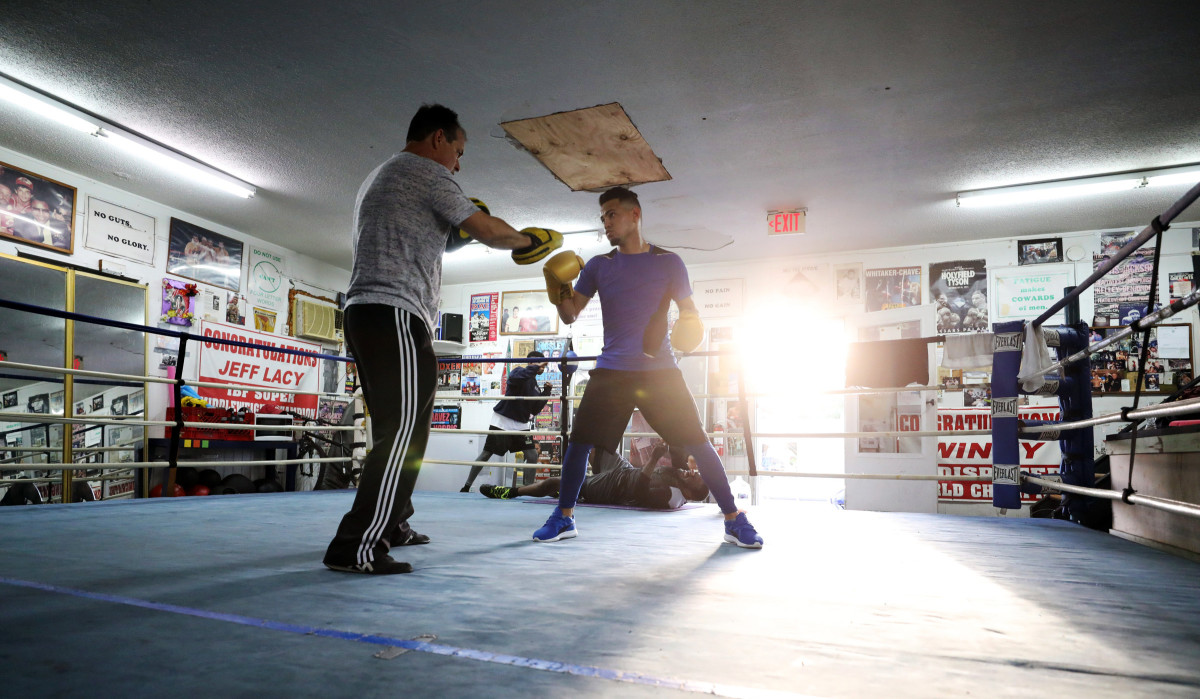
In late May, the last part of Jo’s plan fell into place: Ramírez signed with Top Rank Boxing, one of the sport’s top promoters and home to several of his former Olympic foes. Like any boxer at this stage of his career, Ramírez is several fights, at best, away from any significant purse, but now he has a path to fame and fortune that didn’t exist in Cuba. He’s tentatively scheduled to make his pro debut on August 10 in Philadelphia against Adan Gonzales, a middling opponent, in a fight that will be broadcast on ESPN+. After all the risks, now the rewards. He hopes, anyway.
The detective, meanwhile, still helps Ramírez navigate shopping, still ferries him to workouts. Still drives the same beat-up van. For him, the big payoff hasn’t yet happened. He still hasn’t told his family, though he knows he has to now.
The accountant spent a chunk of another tax season negotiating for his new client with the big boxing outfits, trying to sort out Ramírez’s future. And the restaurateur is back roasting pork. Will they do it again? No, it’s too stressful, Jo says—then she backtracks. These quests are so personal. . . .
And lucrative? David registered with the Florida Boxing Commission, which mandates that fighters must receive at least 67% of all money earned. Still, the expenses from Ramírez’s extraction—the lawyers, the six months on the run in Mexico—all come out of Jo’s end. If there’s a windfall from Robeisy Ramírez, it hasn’t come yet. It could be years away.
For everyone, roles have reversed now. But the collective aim has not. The boxer risked everything and put his faith in this odd band of liberators. Now that he is free and signed, everything they wanted is within reach. All he has to do is perform. Freedom alone isn’t enough.

